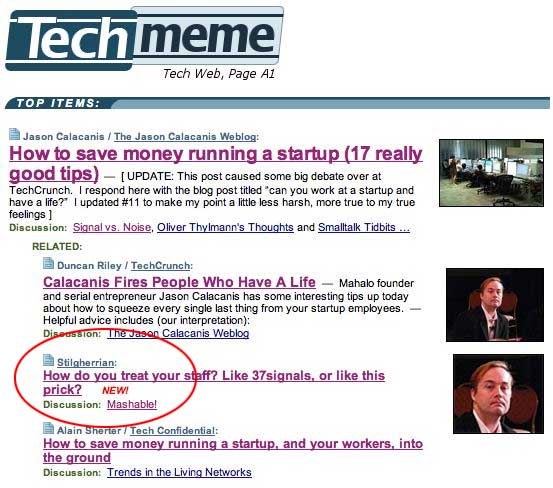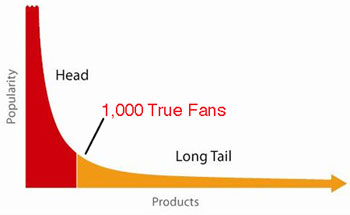A note for folks stumbling across this website thanks to the Jason Calacanis / 37signals / TechCrunch discussion: It’s 4.30pm on a sunny autumn Sunday afternoon here in Sydney. I have been writing a further post which explains, amongst other things, that I’m not trolling (deliberately stirring up controversy), but passionately arguing a genuine concern. I’m amused this has turned into a global controversy, flattered even, when I reckon it’s more a storm in a teacup — though at its heart is a fundamental issue about how we do business. However for the next few hours I’ll be enjoying the remaining sunshine, doing some shopping and generally spending Sunday evening with my beloved. More soon.
Well, I wanted some profile before Australia 2020…
[Update 10 March, 1030 AEDT: I’ve written a follow-up article which, while bound to piss off a few people, explains precisely why I’m so concerned about this issue.]
…but I don’t know whether this was exactly what I had in mind. Calling a high-profile Internet entrepreneur a prick, and then being referenced by some of the highest-traffic tech blogs on the planet.

OK, I participated in the discussion at TechCrunch and the 37signals blog Signal vs Noise, as I should. But then it was picked up by Mashable and then TechMeme (see screenshot). And now I’m seeing inbound from TechCrunch Japan and Colbert Low’s technology blog and who knows where else to come.
Continue reading “Well, I wanted some profile before Australia 2020…”
How do you treat your staff? Like 37signals, or like this prick?
[Update 10 March, 1030 AEDT: I’ve written a follow-up article which, while bound to piss off a few people, explains precisely why I’m so concerned about this issue. There’s also my first follow-up, written on the weekend.]
“Chalk and cheese” is how I’d describe two approaches to staff management I stumbled across this week. One treats staff as trusted contributors to a shared enterprise, the other as disposable work-droids from which you squeeze every last effort.
Jason Calacanis (pictured) has started various firms, including Mahalo, a “human-powered search engine”. (Don’t worry, I’d never heard of it either.) In How to save money running a startup (17 really good tips) there are some good tips — like outsourcing accounting and worrying more about good chairs than tables. But to paraphrase the bad ones:
- Hold meetings at lunchtime so people never get a mental break from work.
- Don’t provide phones so staff have to use their own.
- If someone shows signs of working hard, buy them a computer for home so they end up working nights and weekends too.
- Buy a good coffee machine — not because you’d like to give your employees good coffee, but to prevent them “wasting time” getting it from a nearby barista.
But that’s not the worst…
Continue reading “How do you treat your staff? Like 37signals, or like this prick?”
Note to Harvey Norman
Dear Harvey Norman: When you sell someone a new computer and tell them that “everything’s on there”, please explain that you’ve only dumped a copy of their old hard drive onto it, and that it’s still a few hours’ work to download and install software, put data in the right place and generally configure things. You might also like to explain that the “student and teacher” editions of Microsoft Office you’re trying to push aren’t actually able to be used by people running a commercial business.
All you need is 1000 True Fans

“A creator, such as an artist, musician, photographer, craftsperson, performer, animator, designer, videomaker, or author — in other words, anyone producing works of art — needs to acquire only 1,000 True Fans to make a living.”
So says Kevin Kelly, founder of Wired magazine, in his latest essay 1000 True Fans.
It’s worth reading the full essay to completely grok what he’s on about. But in brief, a “true fan” is someone who’ll purchase anything and everything you produce.
They will drive 200 miles to see you sing. They will buy the super deluxe re-issued hi-res box set of your stuff even though they have the low-res version. They have a Google Alert set for your name. They bookmark the eBay page where your out-of-print editions show up. They come to your openings. They have you sign their copies. They buy the t-shirt, and the mug, and the hat. They can’t wait till you issue your next work. They are true fans…
Kelly’s point is that the Internet allows you to find and stay in touch with True Fans cheaply and easily — globally. He gives some useful numbers to help think it through, and points to some examples which are already working.
That Business Conversation
Mark Pesce’s latest speech, That Business Conversation, given to about 170 CEO-types at the Western Sydney Business Connection yesterday, is another good read.

